Ruminating with JOSEPH CONTRERAS
Former foreign correspondent and UN official, on the Mexican border mess, the nuttiness of Florida, living in a 15 x 7-foot container in South Sudan for four years, and why “Latinx” bugs him.
I’m talking with my old friend Joe Contreras, who I met in the fall of 1975 when we were Harvard freshmen. Joe grew up in LA, where his father drove a delivery truck. When we met, he had hair down to the middle of his back and wore a white tee-shirt with a pack of cigarettes rolled up in one sleeve. He was often carrying a copy of The New Republic.
We were friends and colleagues at Newsweek, where we both worked for 28 years. Joe, a relentless reporter, reported from 50 countries on five continents. Then he went to work for the UN, living in South Sudan as a public information officer for the peace-keeping mission.
I talked to Joe mostly about the U.S.-Mexico border, which he covered extensively, but he takes shots at several targets, including the idea of calling Latinos “Latinx.”
JONATHAN ALTER:
Hi, Joe.
JOSEPH CONTRERAS:
Greetings from sunny South Florida, Jon.
JON:
California used to have the craziest people in the country, but now it’s Florida. You used to live in California but now live in Florida. Coincidence? I don’t think so.
JOSEPH CONTRERAS:
I can reliably report that the Sunshine State has surpassed the Golden State as the insane asylum-in-residence of The Land of the Free and the Home of the Brave.
Consider the following. The Southeastern Front of the Fruited Plain has given us the Koran-burning pastor of the Dove World Outreach Center, the Reverend Terry Jones; the homophobic, orange juice-guzzling Anita Bryant; the Walmart shopper who faked a heart attack to steal Barbie dolls; the Cuban-American yahoo Orlando Bosch who got ten years in The Big House for firing a makeshift bazooka at a Polish freighter docked in the Port of Miami; and the hanging chad [in the disputed 2000 presidential campaign].
The first politico the newly admitted State of Florida ever sent to the United States Senate in 1845 was one David Levy Yulee (nee David Levy), who wasted no time disavowing his (Sephardic) Jewish heritage, married a Presbyterian damsel named Nancy Christian Wickliffe, and spun a yarn about his supposed descent from the Moroccan royal family.
“I can reliably report that the Sunshine State has surpassed the Golden State as the insane asylum-in-residence of The Land of the Free and the Home of the Brave.”
And did I mention my new neighbors (sort of), Ivanka Trump and her pasty-faced hubby Jared, who moved into a posh penthouse in a building two miles northeast of my bayside condo not long after Daddy was fired by the American people?
JON:
I rest my case. So I know the U.S.-Mexican border isn’t in the news this week, but it will rear back up soon. Probably just in time to fuck the Democrats in 2022. We like to talk history here on Old Goats. You first covered the border in the early '80s, just before the 1986 Simpson-Mazzoli Act that was supposed to solve the problem. Why didn't it?

JOSEPH CONTRERAS:
That bill solved some aspects of the immigration issue, like the backlog of folks who had been living in the United States for many years, were law-abiding residents who paid their taxes but were still living in the shadows on account of their undocumented status. Millions of them qualified for amnesty under the terms of that bipartisan legislation.
One of the beneficiaries of that amnesty was my father's companion of many years, Felipa Reyes of the Mexican state of San Luis Potosi, and her teenaged children.
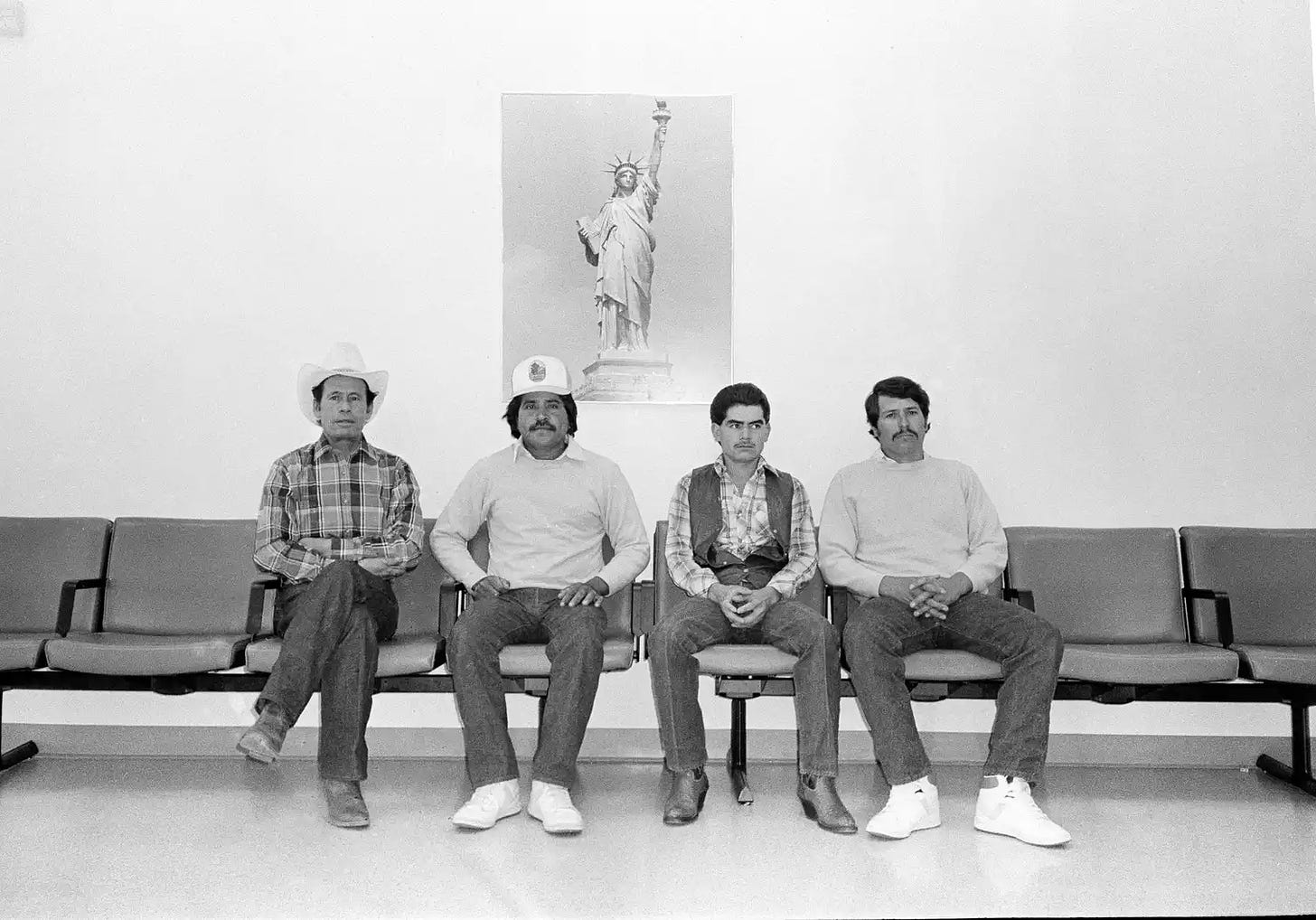
JON:
Now 35 years have passed and the people who came since aren’t gonna get amnesty as long as the filibuster is intact. It’s all much more partisan than it was then.
JOSEPH CONTRERAS:
Simpson was a GOP senator, Mazzoli a Democratic congressman --but at the time I don't think it was seen as a panacea. It was more like a progressive step forward that hopefully would be followed up with more legislation and policies aimed at a more comprehensive solution.
JON:
You wrote a terrific book on how Mexico and the U.S. were becoming more similar as Mexico developed a prosperous middle class, In the Shadow of the Giant: The Americanization of Modern Mexico. And many joined the middle class after a few years here, too. For a while it seemed as if the GOP had gotten the message, especially after California Gov. Pete Wilson's disastrous policy that tried to prevent undocumented workers (taxpayers, all--or mostly) from getting services. This wrecked the GOP in that state, and it has not recovered there.
George W. Bush noticed and he was twice elected governor of Texas in the '90s, in part by appealing to Latinos. Recall how Republicans like John McCain and others tried to work out a deal, but it turns out bashing immigrants was so popular in conservative primaries at the turn of the century that nothing happened.
Obama was scared of the issue, dawdled on it, stressed border security in a failed effort to build support for comprehensive reform, then came through a bit for Dreamers but no one else, and they still aren’t fully protected. After Trump won and demagogued immigration, I was sure his 2016 share of the Latino vote would decline in 2020. But it went up [though he still trailed Biden by about 20 points]. Any theories about why?
JOSEPH CONTRERAS:
One reason is pretty straightforward and I witnessed it first-hand here in the Sunshine State: the whole notion that the Florida-born children and grandchildren of the folks who fled Castro's Cuba in the late 1950s and 1960s had become somehow less right-wing and anti-Communist than their forbears appealed to journalists in a counter-intuitive way but proved to be overblown.
Trump did a masterful job of cultivating the Cuban-American community throughout his four years in office and that helps explain why he won the state by a larger margin over Biden (about 370,000 votes) than he did vis-a-vis Hillary in 2016.
I began to question that whole thesis about the supposedly more liberal leanings of Cuban-Americans born and raised in this country during the Elian Gonzalez circus in this town during the initial four months of 2000 when the residents of Little Havana and Hialeah overwhelmingly lined up behind the boy's crazy Uncle Lazaro and his immediate family, despite the fact that his biological father was alive and well in Cardenas, Cuba and wanted his own son back with him.
The other main source of Trump's stronger showing among Latinos is less obvious at first blush and that has to do with the Mexican-American residents of South Texas, especially those who live in counties lining the border with Mexico. These are socially conservative folks who in some ways have more in common with white Republican suburbanites in Dallas than they do with a leftist, formerly pot-smoking, Ivy League-educated L.A. Chicano like myself.
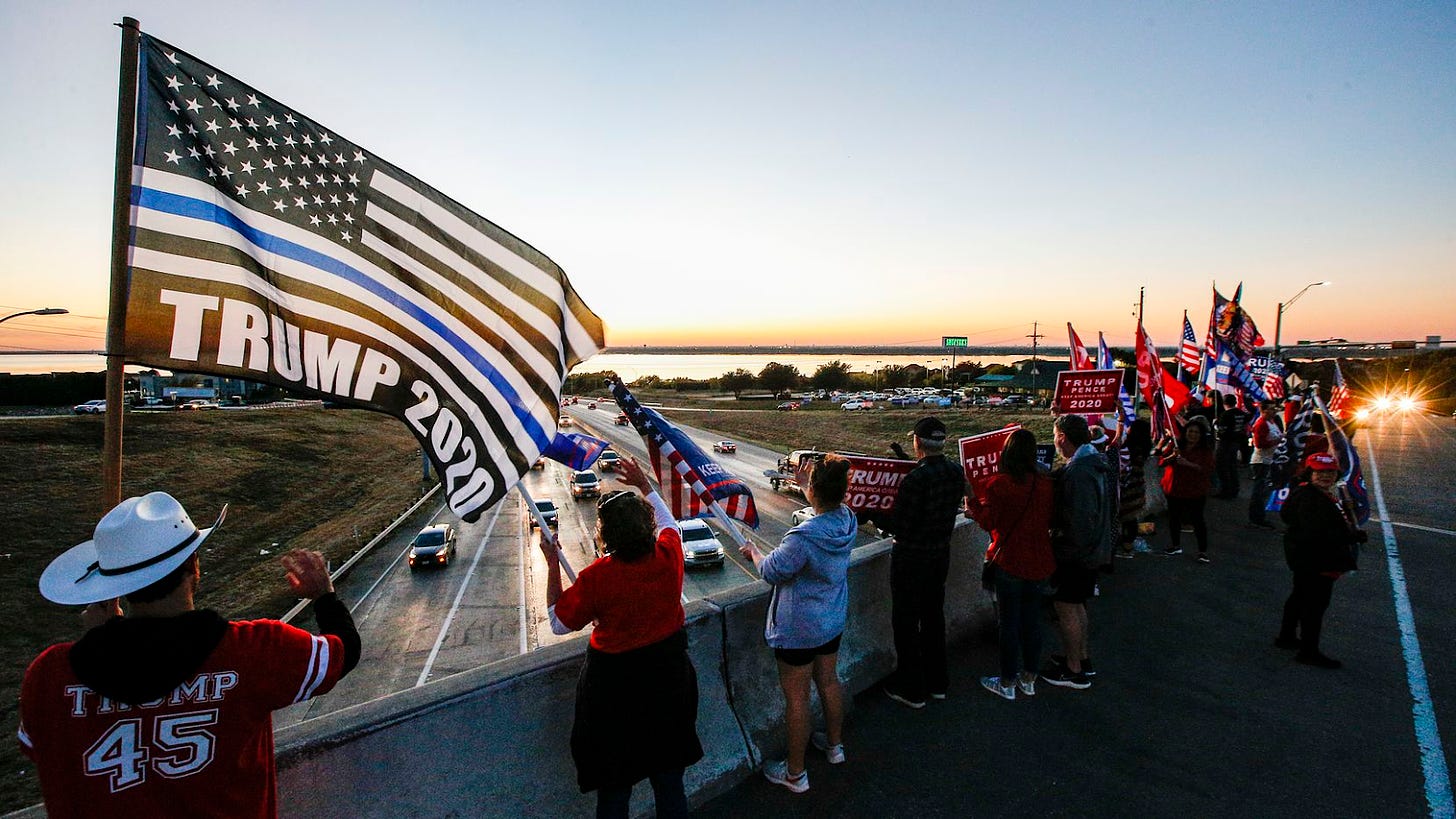
By way of illustration, the very term "Chicano" never gained much traction among my people in the Lone Star State, who to this day prefer to be known as Mexican-Americans. And as volume one of Robert Caro's magisterial LBJ biography amply demonstrates, there is an almost semi-feudal quality to local politics in places like Webb and Zapata counties in the south of Texas.
JON:
Feudal in 2020. Mind-blowing.
JOSEPH CONTRERAS:
Yup. Residents often vote the way they are told to by the movers and shakers in their towns or counties and that may well have been a factor that favored Trump among these voters.
One more factor to throw into the mix in the case of Florida: though they are not nearly as numerous as their Cuban-American and Mexican-American brethren, Florida voters of Venezuelan origin voted overwhelmingly for Trump because of their country's nearly total implosion under the disastrous leadership of the late Hugo Chavez and his inept successor Nicolas Maduro.
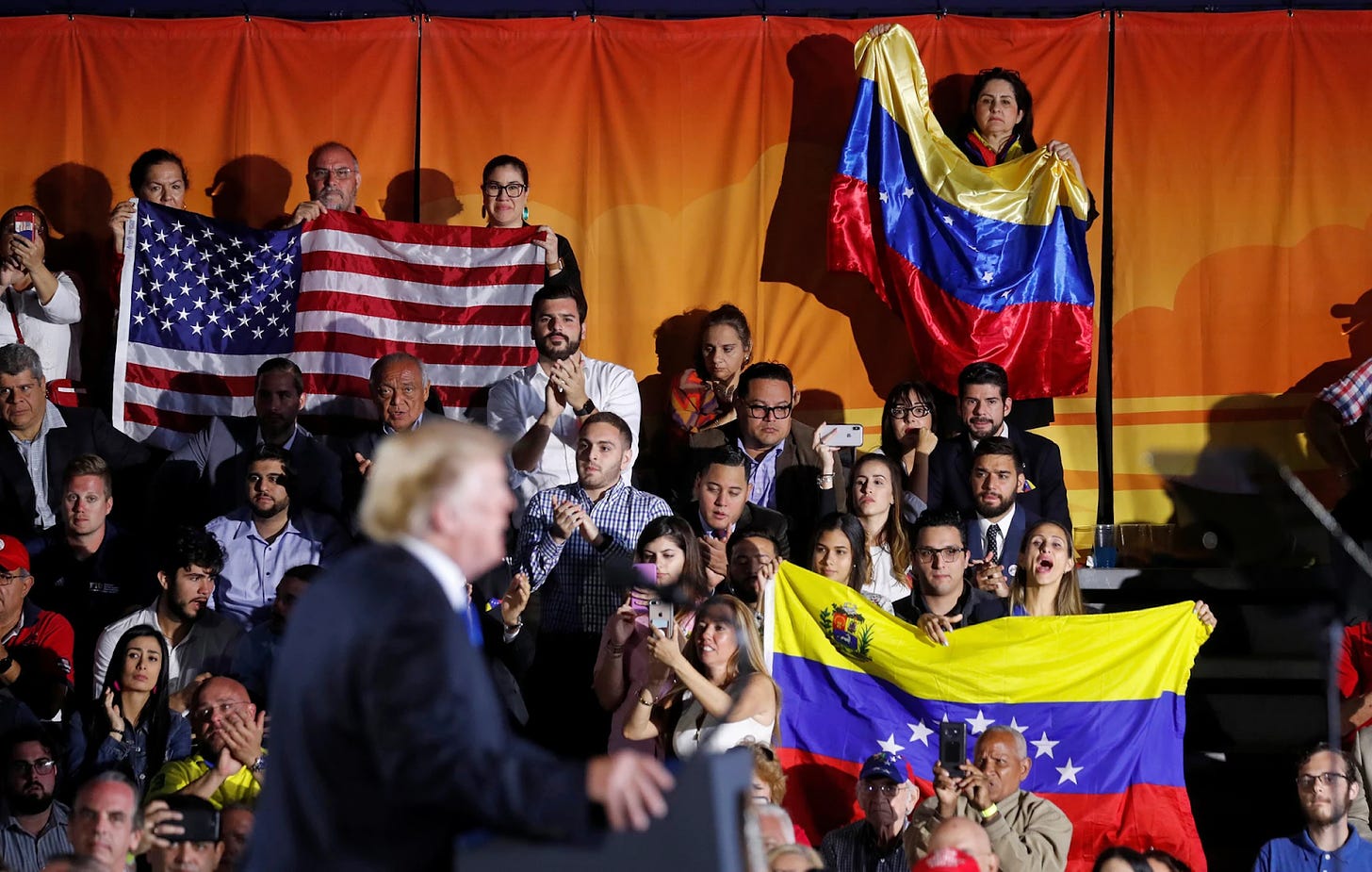
Finally, Biden's team started spending major bucks on courting the Latino vote in the Sunbelt in the final two weeks of the campaign when it was too late, in some cases because folks had already cast their ballots in California, Texas and Florida.
Getting back to those Mexican-American voters in South Texas, don't assume that just because somebody's surname is Lopez or Vasquez that they are going to be sympathetic to the plight of undocumented Latin American workers and their families.
Over the years I've interviewed such folks on this side of the border and some have said that the worst treatment they ever received from Americans was meted out by U.S.-born Latinos. Reminds me of the British phrase, "I'm all right Jack, pull up the ladder" if you get my drift…
JON:
Ah, Elian Gonzales! More than 20 years ago, in early 2000, I went to Florida and the two of us hung out covering that peculiar case. I was writing a column for Newsweek and yakking on MSNBC, which had a little set across the street from Elian's uncle's house. There were--no exaggeration--more than 50 cameras and hundreds of TV people and other press, poised to capture this six-year-old coming out to play on the swing set.
On the merits, I thought his extended family was exploiting him and he should go back to his father in Cuba (his mother had drowned en route)--and that the U.S. trade embargo was (and is) idiotic. But I also had little patience for the American left, which was continuing its longstanding excuse-making for Castro, who by that time had been a freedom-hating tyrant for 40 years.
It was the mother of all cluster fucks--a classic example of how relative peace and prosperity under Clinton gave rise to obsession with trials and flaps like that case.
Florida was so close in 2000 that you could make a strong argument that the photo of the U.S. marshal with a big gun dragging a terrified six-year-old out of a closet (thanks, Janet Reno) cost Al Gore the election and changed the history of the country and the world.
What are your dominant memories of that whole episode?

JOSEPH CONTRERAS:
One that stands out was a young guy in his early twenties who saw me on the street as I was walking towards the Little Havana house of Lazaro Gonzalez, recognized me from my own yak sessions on MSNBC and started yelling, "There's a Communist everybody, that guy's a Communist!!" Needless to say, I kept walking. The other was being the first journalist to identify another Miami-based uncle of the little boy--Manuel Gonzalez-- who totally opposed the designs of Lazaro and his family to keep Elian in Florida and sided with the biological father back on the island. It took a lot of guts for Manuel Gonzalez to publicly espouse on the pages of Newsweek the cause of the dad back in Cuba during the super-heated political climate of Miami during the winter and early spring of 2000.
JON:
Those conservative Cuban-Americans probably don't like to be called 'Latinx," right? And you don't either. Why?
JOE CONTRERAS:
As you know, I'm a Bernie Sanders-type Democrat, I'm so left-wing that I was one of the 97,000 fools in Florida who voted for Ralph Nader and his Harvard-educated running mate Winona LaDuke (class of 1980) because I didn't think Al Gore was progressive enough for our tastes. But I have no time for all the crap dished out by these self-appointed high priests of Political Correctness and that includes the suddenly woke-required use of the term "Latinx."
Why should I abide by some ridiculous diktat from the ranks of wokedom? When I first saw the word "Latinx" in print in a “Critic’s Notebook” in the Los Angeles Times, I honestly thought it was a typo -- until I saw it appear for a second time in that column. Folks can call themselves whatever they want, but it'll be a cold goddamn day in hell when I refer to myself as anything but Latino. Although if all this means that “Hispanic” will come back into vogue -- which it fell out of at some point during this century among my fellow left-wingers -- I have no problem with that.
“Folks can call themselves whatever they want, but it'll be a cold goddamn day in hell when I refer to myself as anything but Latino.”
JON:
Tell us how you really feel, Joe. This is exactly what OGs get to do here--it's a, um, safe space to lay it all out, within bounds of taste and tolerance, of course. The situation with Latinx reminds me of what happened when "Native American" became popular some years ago—at first, many preferred to be called "American Indians." That has changed and “Native American” is more widely accepted, which I expect will happen soon for Latinx, too, in part because it is gender neutral, which I guess one could view as a slight of the Spanish language, which has been gendered for many centuries.
One more question: How small was the container you slept in in South Sudan and--given the latest violence there--will we ever see peace?
JOE CONTRERAS:
The first one was roughly 15 feet in length and 7 feet wide, and had no toilet, shower or sink. Lived in that box for four years and nine months. The second one was somewhat larger and had those facilities so I didn't have to go to what was euphemistically called an "ablutions facility" to shit, shower and wash.
I don't see a lasting peace coming to Sudan or South Sudan in the foreseeable future. The ethnic fault lines are too deep in both countries and the political elites too corrupt and self-serving for that to happen for their long-suffering peoples. It’s especially sad for the South Sudanese because they were so ecstatic and full of optimism when they finally got their independence from Khartoum in 2011.
Jon:
Thanks, Joe. Glad you’re sleeping in a more comfortable place these days.







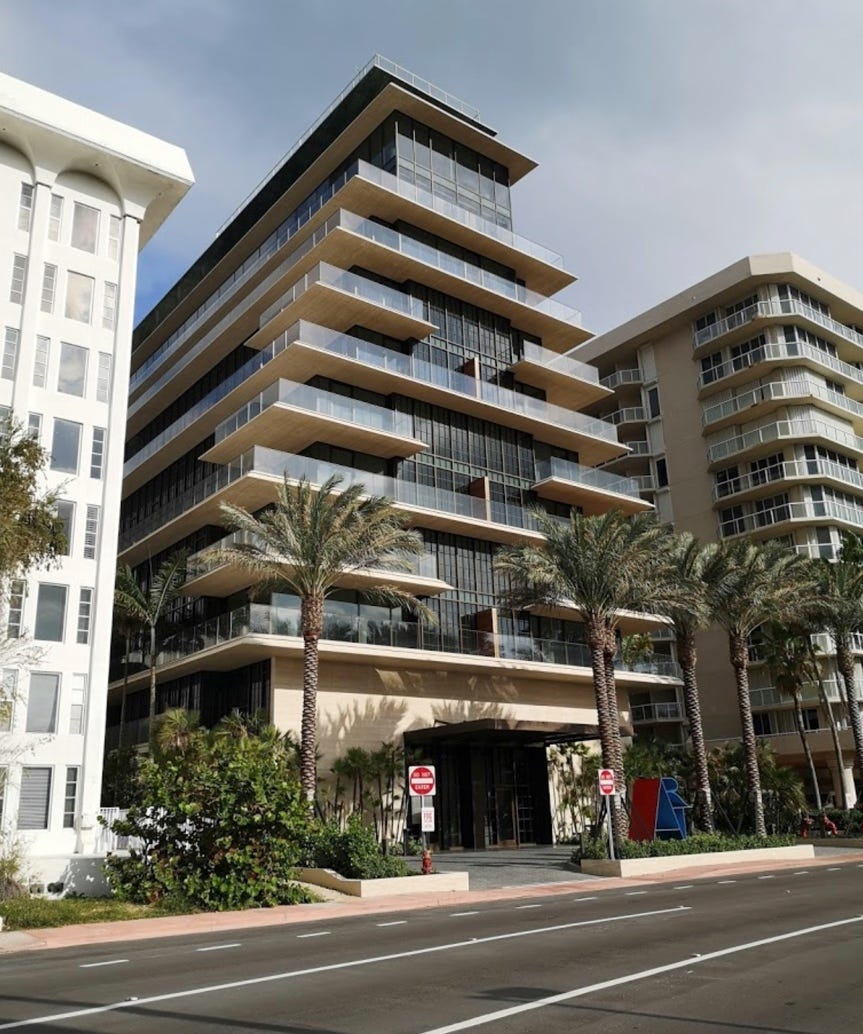
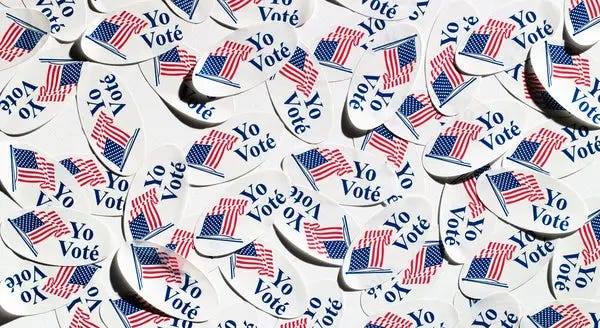
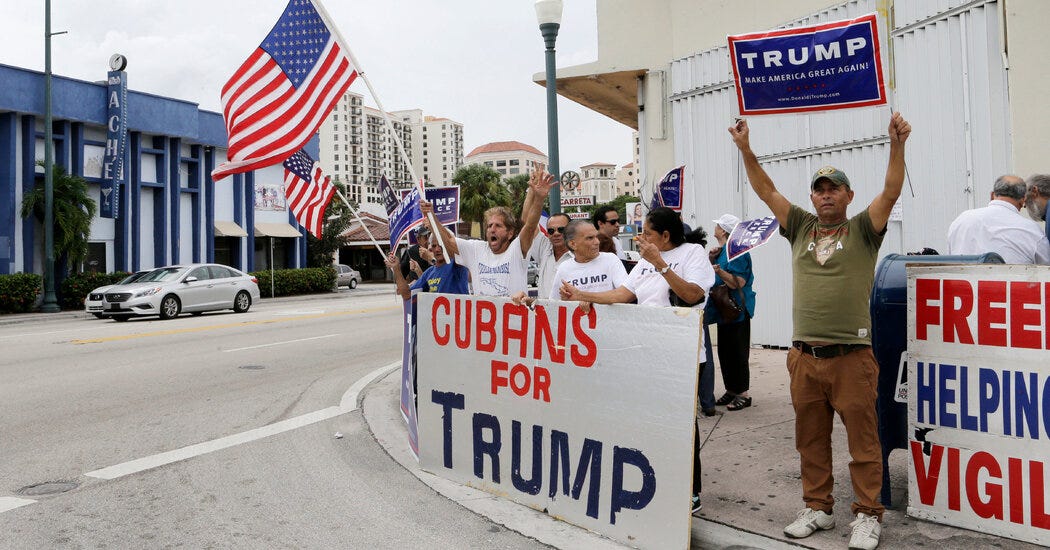
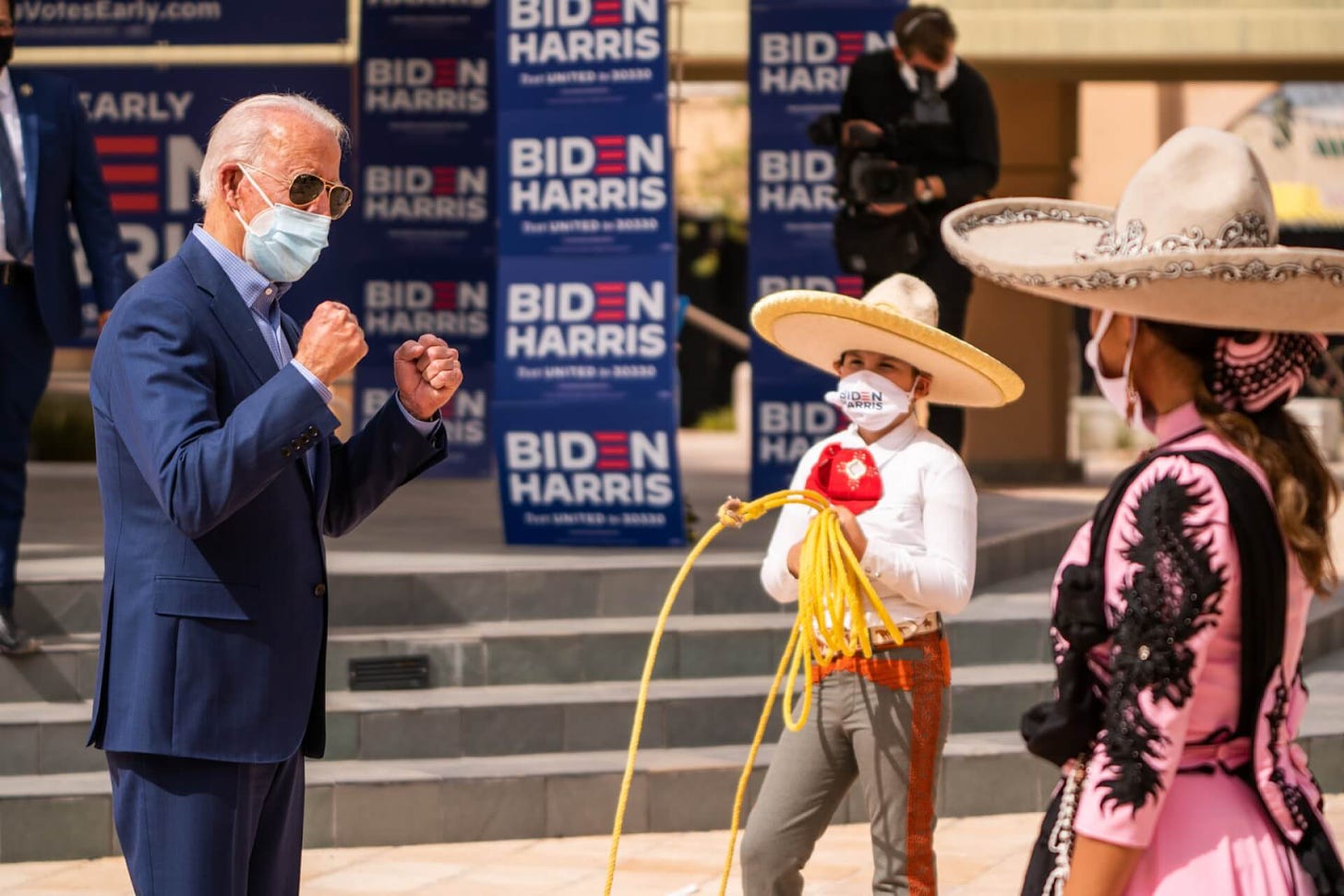

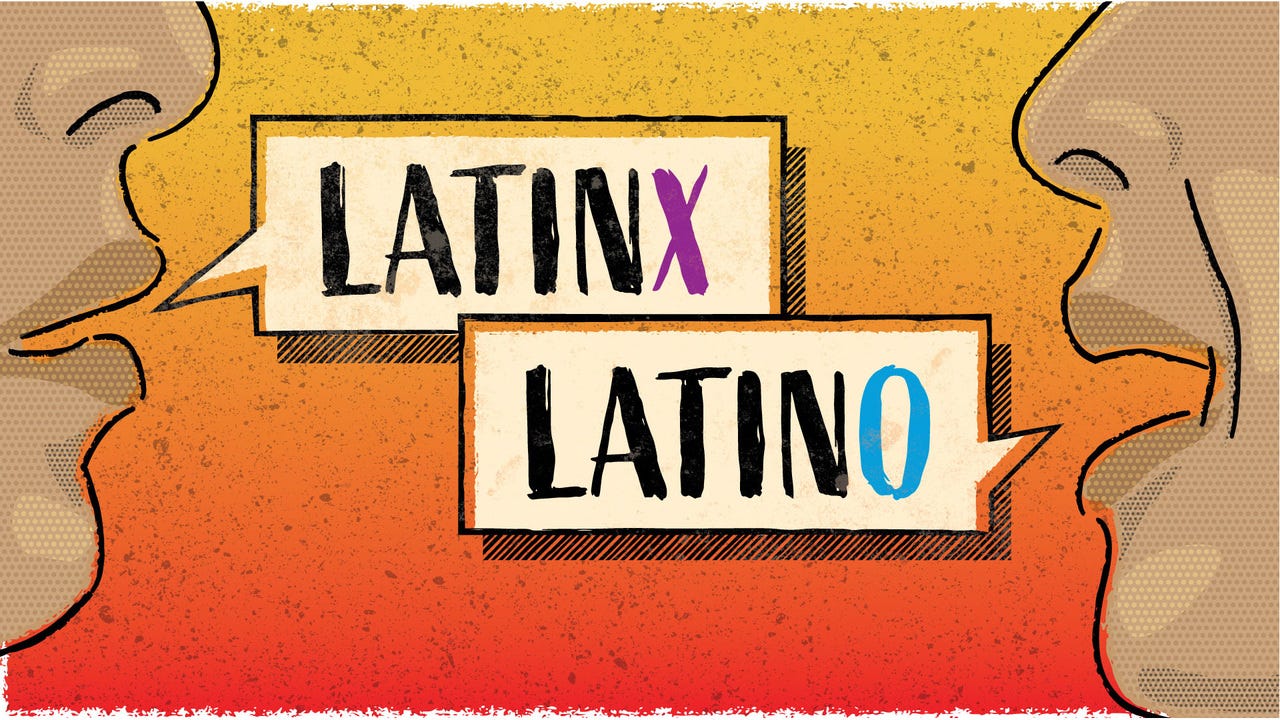
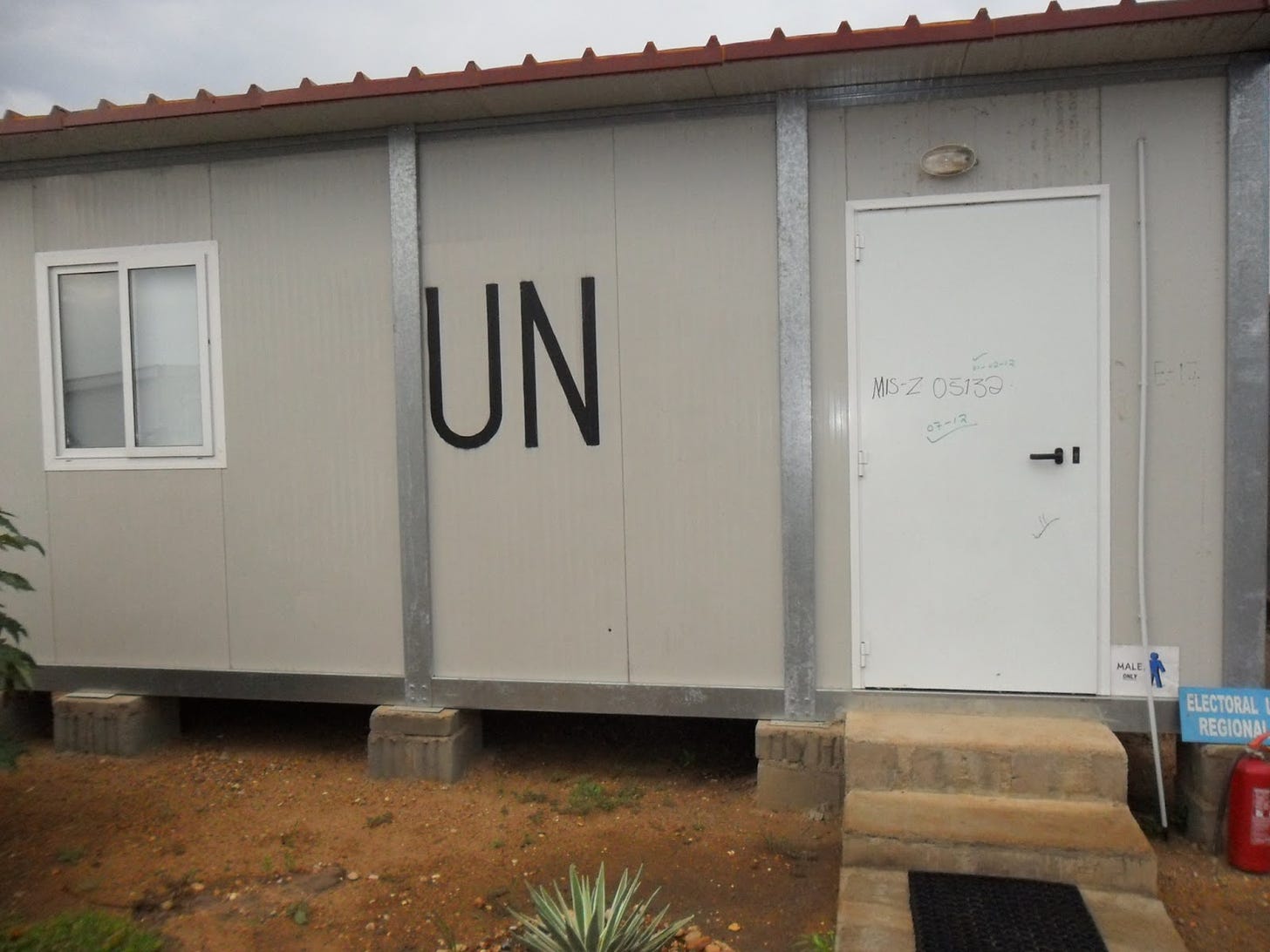


This rumination highlights the great depth of America's current governmental crisis - a stalemate that arises from incoherent border policies, racial superstitions, and inept politicians. Florida is not essentially different than the other, less crazy states - it's just more colorful in its craziness.